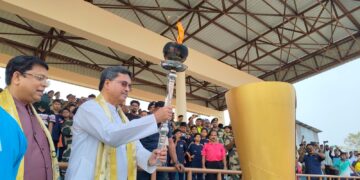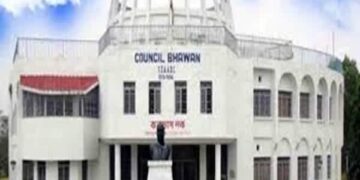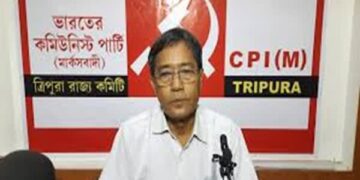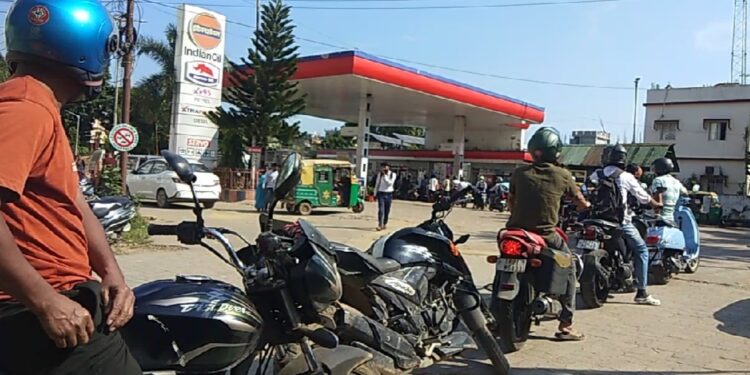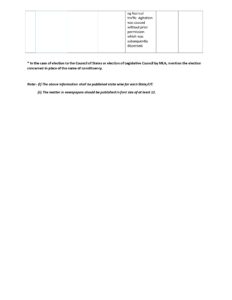Agartala, November 13: Tripura which since past two days is once again facing a severe petrol shortage as disruptions in the rail lines in Assam have affected the transportation of fuel to the state.
With the government resorting to rationing measures, daily life has been significantly impacted, particularly for office-goers and those relying on two-wheelers as their primary means of transport.
In Agartala, the capital city, long queues of anxious commuters were seen outside filling stations on Tuesday.
Frustrated by the prolonged wait, many complained that securing fuel has become a time-consuming necessity, eating into their work schedules and daily routines.
Adding to the frustration, several petrol stations had put up signs reading “No Petrol,” leaving citizens scrambling to find stations that still had some fuel available.
As a result, many were forced to turn to the black market, where petrol was reportedly being sold at exorbitant prices, further straining the budgets of everyday citizens.
A local commuter, speaking on the condition of anonymity, expressed his frustration: “We are forced to stand in queues for hours just to get a few liters of petrol. It’s disrupting our daily lives, especially for those of us who need to reach offices on time.”
Fuel station managers, however, assured that the crisis is temporary and that the situation is expected to stabilize within a few days. “We are hopeful that in next two to three days the shortage will be resolved,” said a manager at one of the fuel stations.
Fuel shortages have become an almost annual ordeal for the landlocked state of Tripura, especially during the monsoon season when landslides and heavy rains in Assam frequently disrupt rail connectivity.
The state, largely dependent on Assam for its fuel supply via trains and, to a lesser extent, by road, faces significant challenges whenever these routes are affected.
Earlier this year, in May, Tripura experienced a similar crisis that lasted for nearly 15 days. The situation had escalated to the point where police intervention was needed, including mild baton charges to control frustrated crowds at fuel stations.
In a bid to address these recurring shortages, Indian Oil Corporation (IOC) has initiated the construction of a new fuel depot at Sekherkote, on the outskirts of Agartala.
The depot is expected to be operational within the next two years and aims to bolster the state’s fuel reserves, reducing its dependence on supplies from Assam.
In the past, Tripura has even resorted to transporting fuel via neighboring Bangladesh, which surrounds the state on three sides with an 856 km border. This alternative route, though effective, is only used in extreme circumstances.
As residents endure yet another fuel crisis, many are calling for more robust infrastructure and contingency planning to ensure that such disruptions do not continue to hamper daily life in Tripura.



